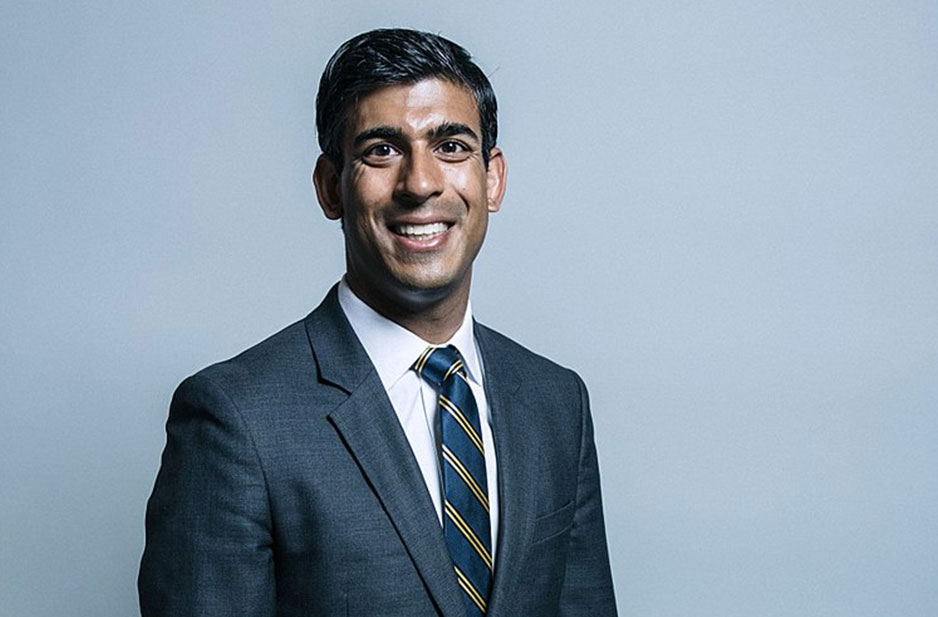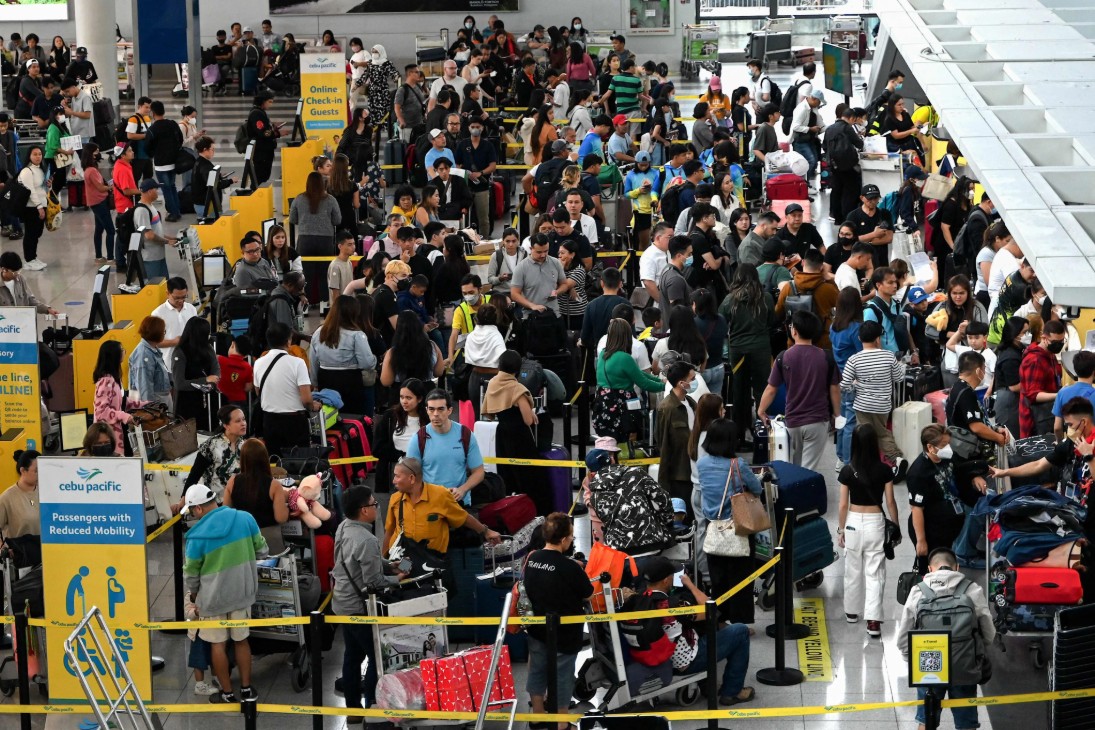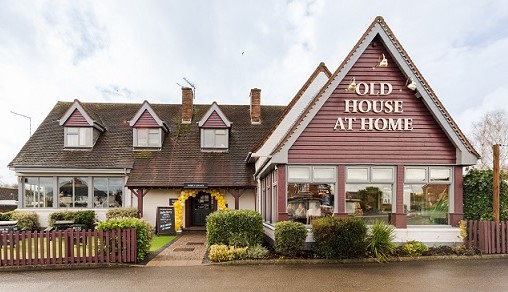Chancellor Rishi Sunak is to make an announcement about what happens after the furlough scheme expires at the end of October.
"I will update the House of Commons on our plans to continue protecting jobs throughout the winter," he tweeted.
The move comes after a day of mounting pressure on the government.
He is understood to be looking at options including a salary top-up scheme, similar to those already operating in France and Germany.
At the same time, the Treasury said there would be no Budget this autumn.
"Now is not the right time to outline long-term plans - people want to see us focused on the here and now," it said in a statement.
During Prime Minister's Questions, Boris Johnson was urged to act swiftly by Labour and SNP MPs to prevent what one called a "tsunami of job losses".
Labour leader Sir Keir Starmer warned there could be a "wave of job losses this winter" if the government does not provide the right economic support when the furlough scheme ends.
In a televised response to the Prime Ministerial Broadcast, Sir Keir called for a "Plan B" for the economy - "because it makes no sense to bring in new restrictions at the same time as phasing out support for jobs and businesses."
In a recording, filmed just before news broke that the chancellor will make an announcement tomorrow about what happens after the furlough scheme expires at the end of October, he said: "There was nothing in the Prime Minister's statement last night to protect people's jobs, businesses or our town centres and high streets.
The PM said Mr Sunak was working on "creative and imaginative" solutions.
Although the Treasury has declined to comment, possible ideas are thought to include allowing firms to reduce employees' hours while keeping them in a job, with the government paying part of the lost wages.
The German "Kurzarbeit" scheme and its French equivalent have attracted much attention in the UK from employers and trade unions alike, with both the CBI and the TUC in favour.
They fear unemployment could spike when the furlough scheme ends, as firms struggle to keep workers on the payroll.
Bank of England governor Andrew Bailey called on the government to "stop and rethink" the furlough scheme, although he did not back any particular alternative.
Julian Metcalfe, the boss of the Itsu restaurant chain and founder of Pret a Manger, said the PM needed to show leadership rather than "spouting off some Churchillian nonsense that we'll make it through (the winter)".
"The repercussions of these six months, it's going to be devastating to so many people," he said.
"People in the hospitality industry, people in work in hotels and restaurants and takeaways and coffee shops - a great many are closing down. We're losing thousands upon thousands of jobs here.
"How long can this continue, this vague 'work from home'?"
What are the possible options?
- Germany's Kurzarbeit: The employer cuts workers' hours and the government pays them a percentage of the money they would have lost as a result. It is a long-established scheme, but it has been revised during the pandemic. It can now run for up to 21 months and the percentage of lost wages paid by the government can now be as high as 80%.
- France's "chômage partiel": The French scheme, known as "partial unemployment" or "partial activity", also pre-dates the coronavirus pandemic. Firms are allowed to cut employees' hours by up to 40% for up to three years. Employees still receive nearly all their normal salary, with the government paying a percentage of the cost.
- The CBI's suggestion: A wages top-up from the government should be available provided that employees can work at least 50% of their normal hours. The firm would pay the actual hours worked in full, but the employee would get paid for two-thirds of the lost hours, with the cost shared between the company and the Treasury. The subsidy would last up to a year.
- The TUC's suggestion: A more generous version of the above. Employees could work a smaller proportion of their normal hours and still be eligible, while they would be guaranteed 80% pay for the hours lost, or 100% if they are on minimum wage.
While there are fears that the cost of a replacement furlough scheme could damage the economy further, others argue that continued government support for jobs is needed to stop unemployment surging from November. Advocates of a salary top-up scheme also point to the fact that both France and Germany have extended their schemes to run for the whole of next year.
A short-time working programme could also be cheaper than the furlough scheme, which guarantees 80% of employees' wages up to a cap of £2,500 a month. That scheme has cost £39.3bn so far, while the Germans estimate that the bill for Kurzarbeit during the pandemic will reach €33.5bn (£31bn) by the end of 2021, although that naturally depends on the progress of the pandemic.
During the weekly Prime Minister's Questions, Mr Johnson came under pressure from MPs from all sides to act quickly to help those businesses hit hardest by the new restrictions on economic and leisure activity.
Citing Whitbread's announcement that it planned to cut up to 6,000 jobs in the UK, Labour leader Sir Keir Starmer said the threat to employment was "not theoretical".
"The CBI, the TUC, the Federation of Small Business, the British Chamber of Commerce and the Governor of the Bank of England are all calling on the PM to stop and rethink and don't withdraw furlough," he said. "We have been saying it for months. When is the prime minister finally going to act?"
The SNP's Westminster leader Ian Blackford said 60,000 workers in Scotland faced being "sold onto the scrapheap" if the furlough scheme was not extended while Labour's Graham Morris said there was a risk of "a tsunami of job losses in the pipeline within 38 days".
In response, the PM acknowledged many firms faced "very difficult circumstances" and although an "indefinite extension" of the furlough scheme was out of the question, further support was being worked on.
"That is why we are looking at a massive package of investment in jobs and growth in the short, medium and long term," he said. "In addition to the package I set out yesterday, there will be creative and imaginative measures from the chancellor to help people through this crisis."

















